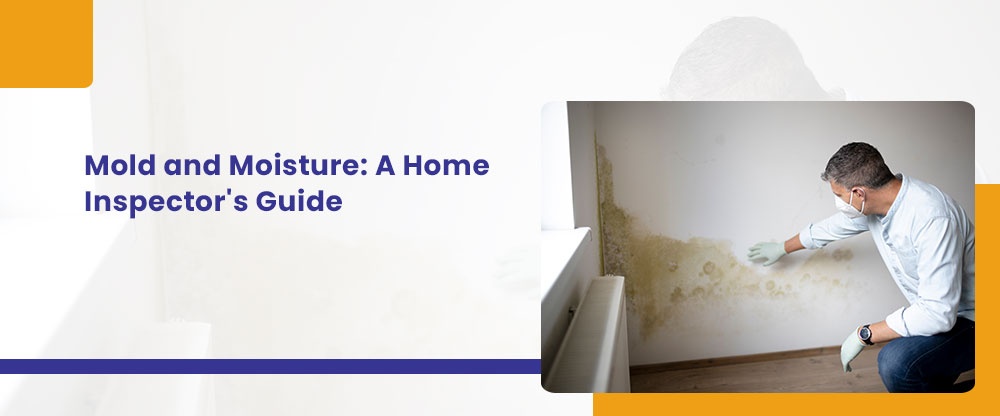Mold and Moisture: A Home Inspector's Guide

When it comes to the hidden problems that can plague a home, mold and moisture issues are among the most insidious. As a homeowner or prospective buyer, understanding the role of a home inspector in identifying and addressing mold and moisture-related problems is crucial for maintaining a safe and healthy living environment.
The Role of a Home Inspector
Identifying Mold Infestations
Mold can thrive in areas with excess moisture and poor ventilation. A home inspector is trained to recognize signs of mold growth. They'll check common trouble spots like basements, crawl spaces, bathrooms, and attics for visible mold and mildew. Even hidden mold behind walls can be detected through various inspection techniques.
Evaluating Moisture Sources
Home inspectors also assess potential sources of moisture intrusion, which can lead to mold growth and structural damage. These sources may include leaking roofs, damaged siding, plumbing issues, or poor drainage systems. Identifying and addressing these problems is crucial to prevent mold and moisture-related issues.
Assessing Ventilation and Insulation
Proper ventilation and insulation are key in preventing moisture-related problems. A home inspector will evaluate your property's ventilation systems to ensure that moisture is effectively managed. Inadequate ventilation can lead to condensation and mold growth, especially in areas like bathrooms and kitchens.
Common Signs of Mold and Moisture Problems
Musty Odors
One telltale sign of mold and moisture issues is a musty, unpleasant odor. This odor often accompanies mold growth and is usually most noticeable in enclosed spaces like basements and crawl spaces.
Discoloration and Stains
Visible signs of mold can include discoloration on walls, ceilings, or floors. Stains and splotches are common indicators that moisture issues may be present, leading to mold infestations.
Peeling Paint or Wallpaper
Excess moisture can cause paint and wallpaper to peel or bubble. Home inspectors look for these signs, as they can be indicative of moisture problems that may need addressing.
Water Stains and Leaks
Water stains on walls or ceilings are clear evidence of a past or ongoing moisture issue. Home inspectors will trace these stains to their source to identify the root cause.
Condensation on Windows
Excessive condensation on windows can indicate poor ventilation, contributing to moisture problems. Home inspectors will assess the windows and ventilation systems to determine if improvements are needed.
Preventing and Addressing Mold and Moisture Issues
Proper Ventilation
Ensuring proper ventilation throughout your home is essential in preventing mold and moisture-related problems. Adequate ventilation systems in bathrooms, kitchens, and attics help reduce humidity levels.
Regular Maintenance
Regular maintenance of your property, including roofing, siding, and plumbing, can help prevent moisture-related issues. Addressing leaks and damages promptly can save you from costly repairs in the long run.
Mold Remediation
If mold is identified during a home inspection, it's crucial to address the issue promptly. Mold remediation specialists can safely remove the mold and provide recommendations to prevent its return.
Mold and moisture problems can be hidden, yet they have the potential to cause significant health issues and property damage. If you are looking for a qualified home inspector, contact DS Home Inspection Services, LLC. With our assistance, you can ensure a safe and healthy living environment for yourself and your family. Don't leave these issues to chance; schedule a comprehensive home inspection today.
Get in touch with me today
To learn more about what we do, please click here. To contact us, please click here or call us at (240) 900-3208.